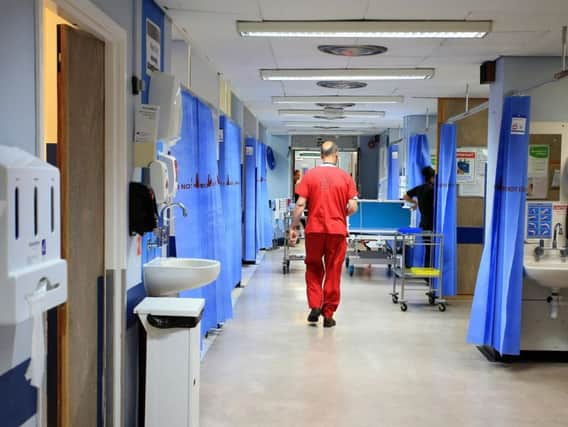Patients facing long waits for key medical tests in Preston


Experts have blamed delays on a lack of funding, meaning hospitals do not have the necessary staff or equipment to keep up with demand.
NHS trusts provide information on how long patients have been waiting for 15 key tests at the end of each month.
Advertisement
Hide AdAdvertisement
Hide AdThe procedures are used to diagnose a wide range of diseases and conditions, including cancers, heart failure, hearing problems and sleep disorders.
According to NHS rules, after a patient is referred for one of the tests, they should have it done within six weeks.
NHS England data shows 7,158 patients at Lancashire Teaching Hospitals NHS Trust were waiting for one of the tests at the end of June.
But 323 (4.5 per cent) had waited six weeks or more – above the national target of one per cent.
Of those, three were kept waiting for at least 13 weeks.
Advertisement
Hide AdAdvertisement
Hide AdThe most common type of test for which patients saw delays was echocardiography, which uses high-frequency sound waves that can help spot heart failure – for which 205 people waited at least six weeks.
The next most delayed test was peripheral neurophysiology, which tests the function of the nerves and muscles – 73 patients endured the same hold-up.
And 17 people were left waiting the same length of time for cystoscopy, an examination which can help to spot bladder tumours.
The rate of patients at the trust waiting six weeks or more has risen – 0.7 per cent experienced such a delay in June 2018.
Advertisement
Hide AdAdvertisement
Hide AdThe trend at the trust reflects that across England, where 3.8 per cent of patients had waited at least six weeks for the tests at the end of June – the figure stood at 2.9 per cent the previous June.
Dr Nick Scriven, president of the Society for Acute Medicine, said the tests had grown in number and complexity, adding to the problem of staff shortages and old equipment.
He added: "Delays are bad for patient care and their experience of care. The other issue with delays in routine tests is that the conditions deteriorate, necessitating emergency admission or doctors keeping patients in hospital for a test when they might have otherwise gone home."
A spokesperson for The Royal College of Radiologists said increasing waiting times were “deeply frustrating, but sadly unsurprising".
Advertisement
Hide AdAdvertisement
Hide AdThey added: "Hospital imaging departments are struggling all year round, as the demand for scans continues to spiral and we simply do not have enough capacity on scanners, radiographic staff or radiology consultants to keep up due to underfunding."
Saffron Cordery, deputy chief executive of NHS Providers, said growing demand for the tests, combined with workforce shortages, means trusts are struggling to meet standards.
She added: "In particular, trusts are seeing an increase in patients referred under the two-week urgent cancer referral standard, which is adding to the pressure.”